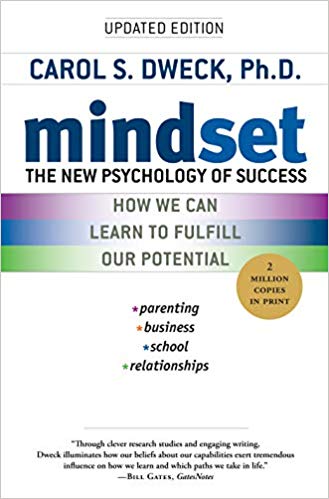

This article is an excerpt from the Shortform summary of "Mindset" by Carol Dweck. Shortform has the world's best summaries of books you should be reading.
Like this article? Sign up for a free trial here .
What is the secret to developing healthy friendships? What if you’re shy? What if there are problems in your friendship–is it a lost cause? Should you throw in the towel?
The secret to healthy friendships is the secret to healthy relationships in general: having a growth mindset. We’ll cover how a growth mindset can help you create and maintain healthy friendships and help you deal with your shyness.
The Growth vs. Fixed Mindset
If a growth mindset is the key to building healthy friendships, we need to know what a growth mindset is. Let’s start with its opposite, the fixed mindset:
Fixed mindset: When you have a fixed mindset, you believe your abilities are unchangeable. You were born with certain traits and a certain amount of intelligence and that’s that. Many people are trained in this mindset from an early age — for instance, by a teacher who believes your IQ determines everything: You’re either smart or you’re dumb; you can learn or you can’t. When you view your abilities as unchangeable, you feel you must constantly prove yourself. If people get a set amount of intelligence, you want to prove you have a lot, although you secretly worry you were shortchanged.
Growth mindset: When you have a growth mindset, you believe the abilities you’re born with are a starting point. You can get smarter and grow with hard work, persistence, and the right learning strategies. You have a passion for learning, welcome mistakes as opportunities to learn, and seek challenges so you can stretch.
The two different mindsets lead to different sets of thoughts and actions, and two different paths. They dictate people’s aspirations; how they see success, failure, and effort; and what that means in school, sports, work, and relationships.
In forming healthy friendships, a growth mindset helps you see that part of your role as a friend is to help your friend grow…and its her role to help you grow as well. This is the secret to lasting, healthy friendships.
Helping Each Other Develop
In healthy relationships, partners are on the same side, not competing or battling constantly. They develop the skills to handle differences — both partners grow and the relationship grows. Each helps the other achieve and become the person they want to be.
For example, Laura encouraged Jack in his plans to start a business, and Jack encouraged Laura to pursue her dream of writing a children’s book. When they were first married, Laura was prone to yelling and being defensive, but Jack didn’t take it personally and helped her learn to handle things constructively. A relationship is an opportunity for two people to help each other grow.
Healthy Friendships
Friendships are also relationships in which people can help each other grow and develop. A friend can give you the courage to take big steps. Friends validate each other (“You did the right thing”) and affirm each other’s positive qualities. Despite the danger of praising someone’s traits, everyone needs reassurance at times that they’re inherently OK.
However, a fixed mindset can interfere with a friendship if someone needs to prove themselves at another’s expense. Researchers studying adolescent boys found that when boys with a fixed mindset endorsed negative stereotypes about girls, their self-esteem rose. Thinking that girls were stupid made them feel superior. Another kind of fixed-mindset friend who could be harmful is someone who makes you feel bad about yourself; they build themselves up by establishing your inferiority.
Healthy friendships are not overly competitive. They’re encouraging and affirming.
Shyness
Shyness can keep people from developing healthy friendships. It affects people with fixed mindsets as well as those with growth mindsets, but shyness is a bigger problem for fixed-mindset people. They fear others’ judgment more, leading to unhealthy friendships. But research shows that moving to a growth mindset can help shy people handle anxiety-producing social situations better, leading to healthier friendships.
Researchers who watched shy people interact found that shy people with fixed mindsets had more difficulty with social interaction than shy people with growth mindsets did. Both had difficulty in the beginning of a conversation with a stranger, but after the first five minutes, shy growth-oriented people became more comfortable and enjoyed the interaction more. The reason is that the growth-oriented shy people viewed the interaction as a challenge. Although they felt anxious initially, they focused on the potential benefits of meeting someone new.
The lesson is that growth-minded shy people can take control of their shyness, despite being nervous. Shyness doesn’t stymie them the way it does people with fixed mindsets who are afraid of making mistakes.
If you’re shy, adopting a growth mindset can help. Remember that you can learn and improve social skills with practice. Think of social interactions as opportunities to expand your network and to learn something new, instead of worrying about being judged. This will help you form healthy friendships.
———End of Preview———

Like what you just read? Read the rest of the world's best summary of "Mindset" at Shortform . Learn the book's critical concepts in 20 minutes or less .
Here's what you'll find in our full Mindset summary :
- The difference between a growth and a fixed mindset
- How a fixed mindset keeps you back throughout your life: education, relationships, and career
- The 7 key ways to build a growth mindset for yourself






